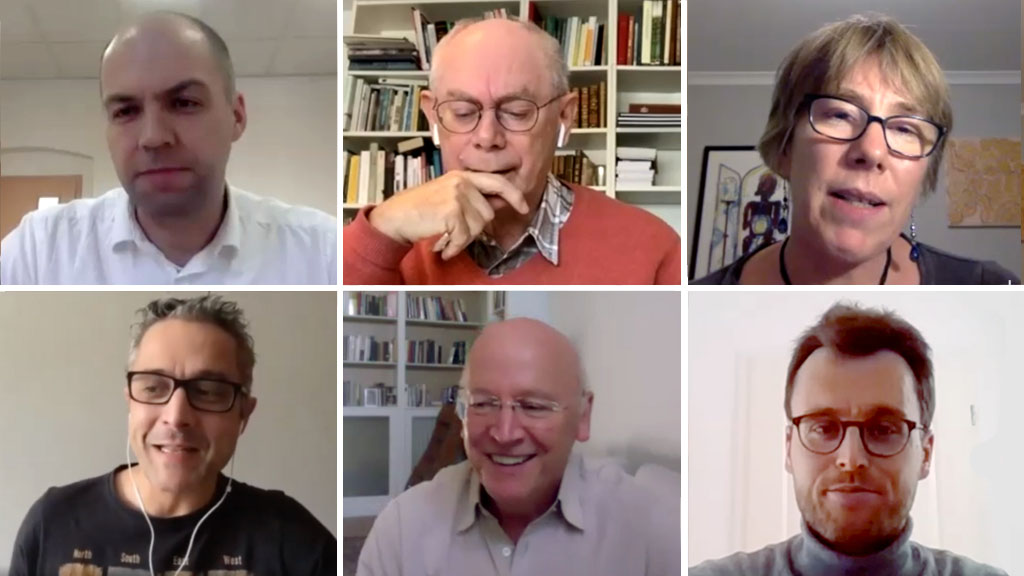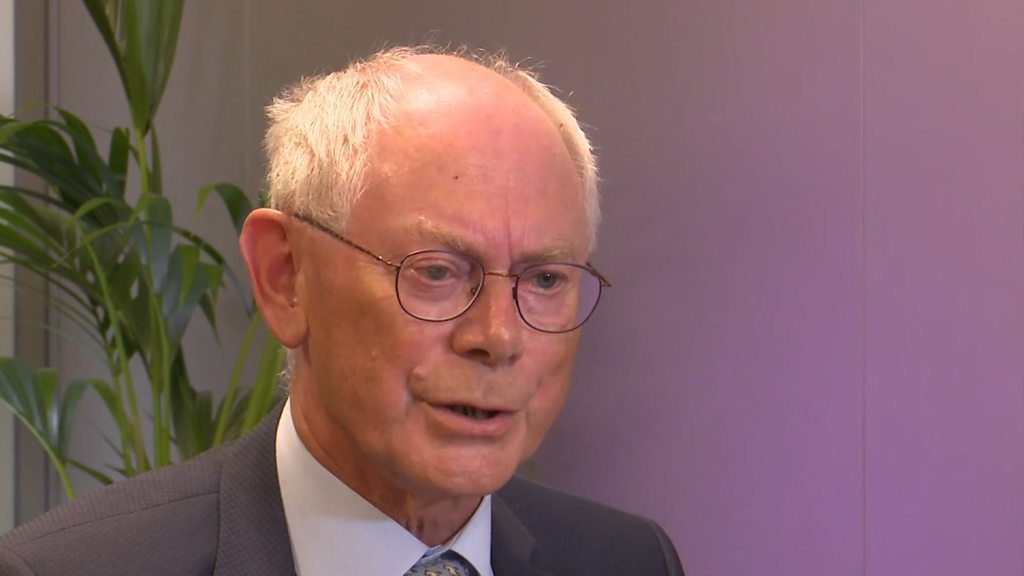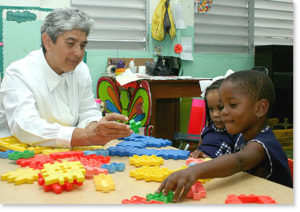Herman Van Rompuy, lifelong Belgian politician, joins Laurence Freeman and the editorial board behind the WCCM Contemplative Through the Crisis Programme (Vladimir, Leonardo, Thomas and Sarah) in a conversation on the current pandemic crisis and all the questions it is challenging our society to address.

The health crisis we’re living is more than just a health crisis. The pandemic has accelerated the sense of urgency which we feel with regard to, for example, democratic institutions or towards how governments and people relate to each other, to the place of spirituality and the place of religious traditions globally. In this conversation, questions such as: What is a contemplative conscious mind? – Is the current technology fuelling this polarisation? – What is the role of religion in all of this? – are all explored and investigated.
“The complexities of our situation and lack of balance in public discourse cause for a new approach, a new mental state in which we handle these problems. That’s what I would call a contemplative conscious mind.” says Father Laurence. With a contemplative approach, we’re able to deal with highly polarised situations, with situations of conflict. A contemplative consciousness allows us to engage, without running away, making a contribution while not adding to the polarisation.

With a contemplative approach, we’re able to deal with highly polarised situations
Understanding ourselves, restoring the spirit of joy even in times of suffering, finding meaning in complex and painful experiences is also part of that contemplative mind.
Watch the full conversation here:
About Herman Van Rompuy

Herman Van Rompuy is a Belgian politician, who served as Prime Minister of Belgium from 2008 to 2009 and then as the first permanent President of the European Council from 2009 to 2014. More recently, he was one of the speakers at the 2018 John Main Seminar in Belgium, addressing the theme Politics and the management of division.


